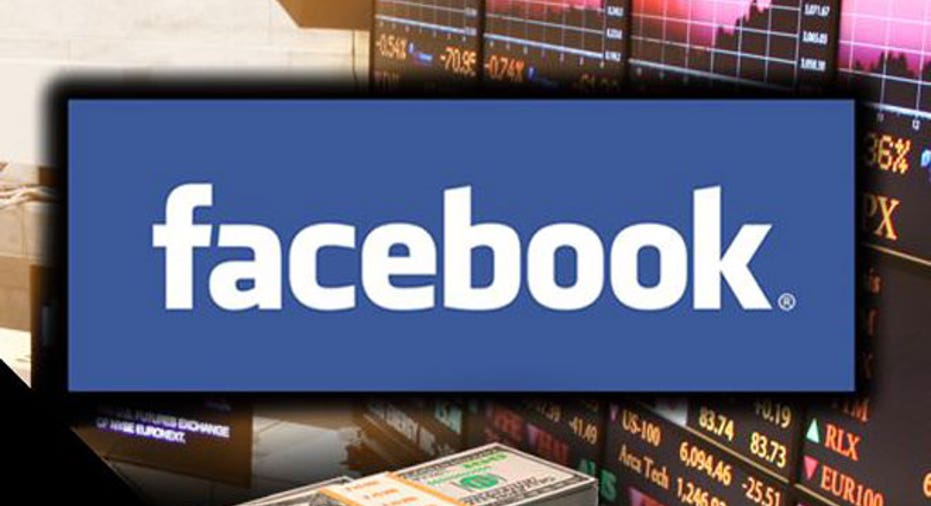Facebook IPO: Limit Orders, Not Market Orders

Demand for shares of Facebook ahead of its initial public offering scheduled for Friday is obviously intense.
Not only did the wildly popular social media web site increase the price range to $34-$38 from $28-35, but on Wednesday Facebook increased the number of shares to be sold in the IPO by 25%.
A lot of people want a piece of this company. Retail investors should be careful about what they want, however, because they might just get it.
Investors should take care to avoid the mistakes of past chasers of high-flying Internet IPO stocks. Specifically, retail investors who find themselves unable to buy Facebook shares at the IPO price should avoid at all costs placing market orders for the stock that are meant to be executed immediately after the shares debut.
"If investors enter market orders on the stock and it opens up very hot, clients could get filled at a far greater price than anticipated."
Limit orders yes. Market orders no.
“Although Facebook is profitable in comparison to many technology IPOs, great risks still exist,” warned Andrew Stoltmann, a Chicago-based securities lawyer. “If investors enter market orders on the stock and it opens up very hot, clients could get filled at a far greater price than anticipated, and it would be required that it’s paid in full.”
Stoltmann continued: “If the stock opens up as hot as people think that it will investors will get filled at that high opening point and unfortunately it’s very common for an IPO stock to then pull back and decline either later that day or over the next couple of days. Therefore you’ve locked in an immediate and significant loss.”
Stoltmann is describing a frightening situation in which countless retail investors unwittingly found themselves during the heyday of the dotcom boom in the late 1990s.
Here’s what happened -- several times a week back in those days. Some dotcom company with no revenue, no earnings and only the slimmest wisp of a business model would debut to much fanfare on Wall Street. Back then, standard metrics for brining a company public were thrown out the window and anything remotely related to the Internet was not only fair game for an IPO but highly sought after by investors.
The pattern was the same each week -- and very similar to the path Facebook is now following. Demand for the shares ahead of the IPO was so strong the company raised its price range and the number of shares to be sold. The shares then priced at the high end of the range. All these twists and turns were breathlessly covered by the financial press, ramping up demand even more.
Facebook has followed this pattern to the letter.
The Beauty of Limit Orders
In high-profile, high-demand IPOs most of the pre-trading shares are sold to the underwriters’ best clients, usually huge institutional investors. Retail investors are left scrambling for shares after the stock debuts in the so-called after-market. But by that time the stock may have tripled or quadrupled in value.
The trouble occurs when investors place market orders for these highly sought after shares with their brokers the night before the actual IPO. The broker then executes the order after the stock hits the open market -- and after the stock has surged many times in value above the IPO price. That leaves the investor paying a much higher price than they may have anticipated.
Let’s put some numbers to this scenario. Consider the November 1999 IPO of TheGlobe.com, one of the great busts of the dotcom era (and ironically a precursor to Facebook), which priced 3.1 million shares at $9 each.
Insane after-market demand caused the stock to open – open – at $87. The shares climbed as high as $97 on their first day of trading before closing at $63.50.
If a retail investor put in a market order expecting to pick up 100 shares at, say, $18, or double the IPO price, the total amount they intended to spend would have been $1,800. If that market order was executed instead when the stock was at its peak of $97 that investor would be on the hook for $9,700. By the time the stock closed for the day that same investor would have already lost $3,350.
“That happened so often back in the 1990s,” said Stoltmann.
Investors determined to buy Facebook shares ahead of the Friday IPO should place a limit order with their broker which states that the trade can only be executed at a certain price. If for whatever reason the trade can’t be executed at that price, the trade doesn’t happen. While a limit order doesn’t guarantee that an investor will get his shares, it does guarantee the investor won’t buy the shares at a price far exceeding his intentions (or bank account).
Stoltmann cautioned investors to wait a few hours after the stock debuts to put in that market order, noting that the first few hours of trading will be the most volatile.
“If you put that market order in later on Friday you’ve got a much better chance of having that order filled at a price you can afford,” he said.



















